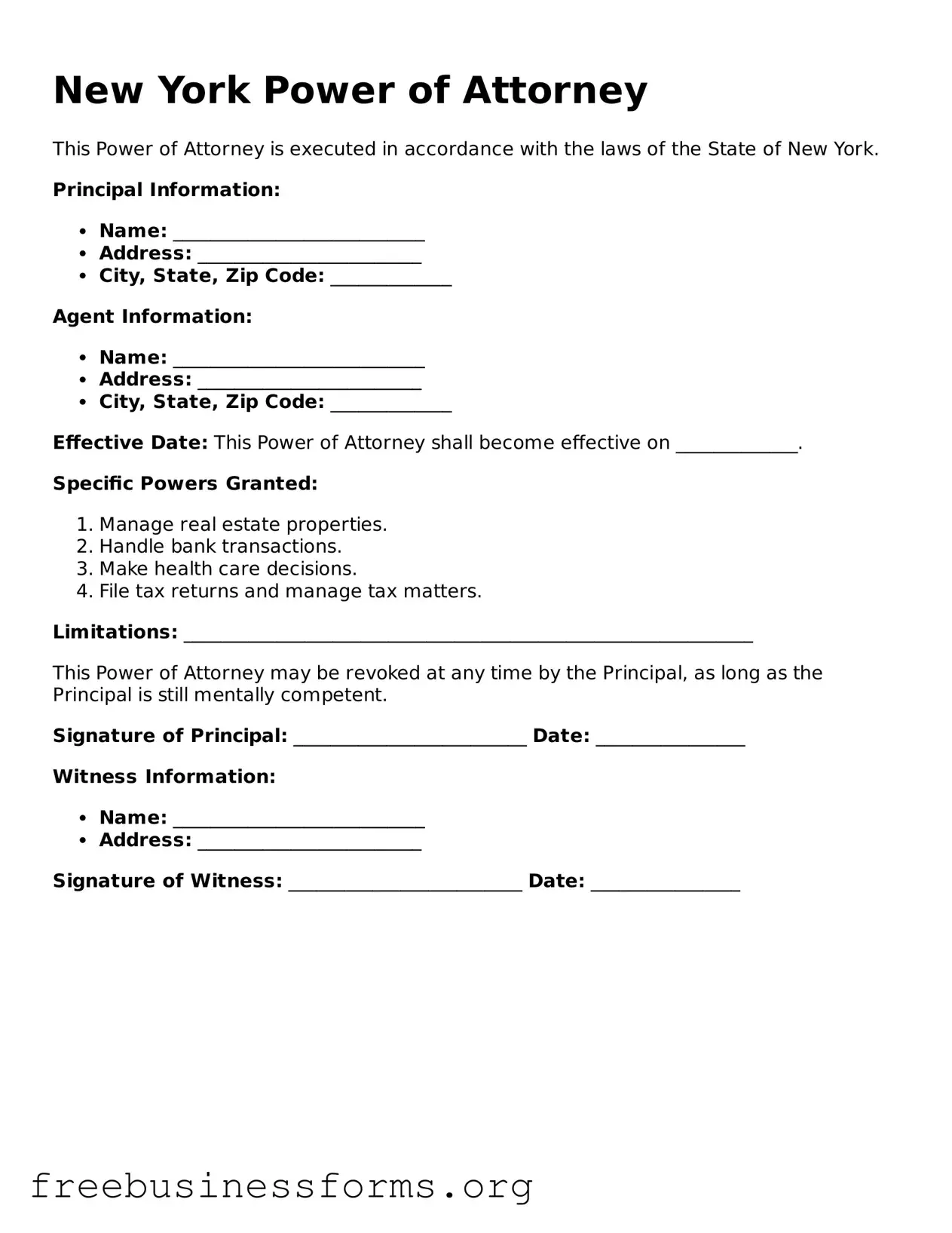Blank Power of Attorney Template for New York
A Power of Attorney form in New York is a legal document that allows one person to appoint another to make decisions on their behalf, particularly regarding financial and legal matters. This form is essential for ensuring that your wishes are honored when you cannot act for yourself. Understanding how to properly use and complete this document can provide peace of mind and protection for your interests.
Open Form Here

Blank Power of Attorney Template for New York
Open Form Here

Open Form Here
or
↓ PDF File
Quickly complete this form online
Complete your Power of Attorney online quickly — edit, save, download.